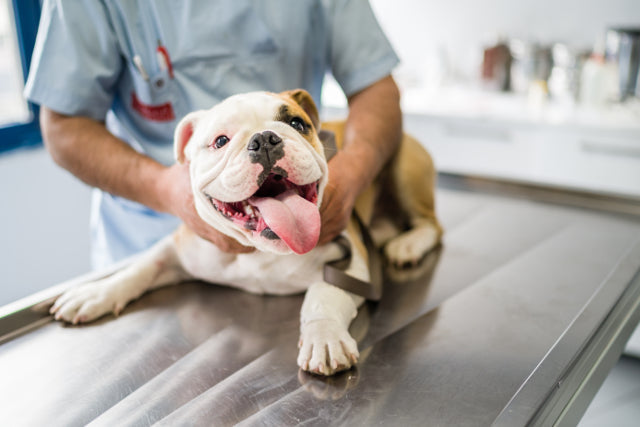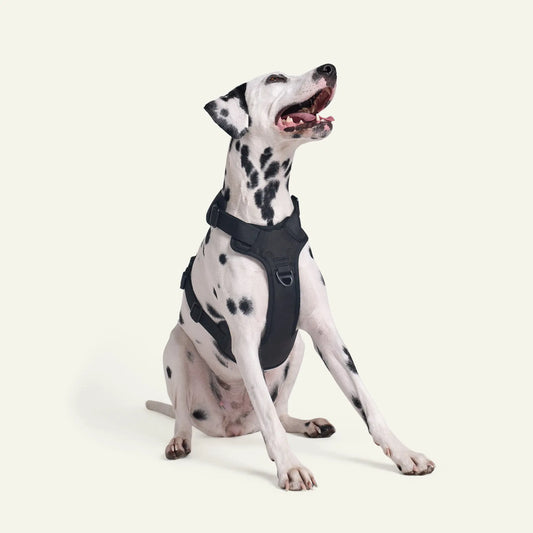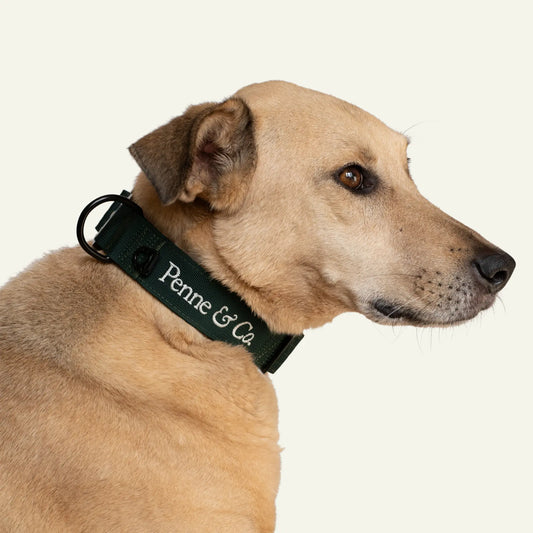9 Common Dog Health Issues and How to Prevent Them

9 Common Dog Health Issues and How to Prevent Them
As a responsible dog owner, you want to ensure that your furry friend stays happy, healthy, and active. However, dogs, like humans, can face a variety of health issues throughout their lives. Understanding the most common dog health issues and knowing how to prevent them can help you provide the best care for your pet. This comprehensive guide will walk you through the most prevalent health problems in dogs and offer practical tips on prevention.
1. Obesity
Overview:
Obesity is one of the most common health issues in dogs, particularly in developed countries. It occurs when a dog consumes more calories than it burns, leading to excessive weight gain. Obesity can increase the risk of other health problems, such as diabetes, heart disease, and joint issues
Prevention:
• Balanced Diet: Feed your dog a balanced diet with the right amount of calories. Avoid giving too many treats or table scraps.
• Regular Exercise: Ensure your dog gets plenty of exercise. Daily walks, playtime, and mental stimulation are essential.
• Portion Control: Follow the feeding guidelines provided by your vet or the dog food manufacturer, and adjust portions as needed based on your dog’s activity level and age.
• Regular Weigh-Ins: Monitor your dog’s weight regularly and consult your vet if you notice any significant changes.
2. Dental Disease
Overview:
Dental disease, including gingivitis, periodontitis, and tooth decay, is a prevalent issue in dogs. Poor dental hygiene can lead to pain, tooth loss, and infections that can spread to other parts of the body.
Prevention:
• Regular Brushing: Brush your dog’s teeth regularly using a dog-specific toothpaste. Daily brushing is ideal, but even a few times a week can make a difference.
• Dental Chews: Provide your dog with dental chews that help reduce plaque and tartar buildup.
• Vet Check-Ups: Include dental exams as part of your dog’s regular veterinary check-ups. Your vet can recommend professional cleanings if needed.
• Healthy Diet: A diet that includes dry kibble can help reduce plaque, while certain dog foods are formulated to promote dental health.
3. Parasitic Infections
Overview:
Dogs are susceptible to various parasitic infections, including fleas, ticks, heartworms, and intestinal worms. These parasites can cause discomfort, disease, and, in severe cases, death.
Prevention:
• Regular Preventive Medication: Administer monthly flea, tick, and heartworm preventives as recommended by your vet.
• Regular Grooming: Regularly groom your dog to check for signs of fleas and ticks. Pay special attention after outdoor activities.
• Clean Environment: Keep your dog’s living area clean and wash their bedding regularly.
• Routine Vet Visits: Regular vet visits can help detect and treat parasitic infections early.
4. Ear Infections
Overview:
Ear infections are common, especially in dogs with floppy ears or those that swim frequently. Infections are usually caused by bacteria, yeast, or ear mites and can be painful if left untreated.
Prevention:
• Regular Ear Cleaning: Clean your dog’s ears regularly with a vet-recommended ear cleaner. Be gentle and avoid pushing debris further into the ear canal.
• Dry Ears After Swimming: Always dry your dog’s ears thoroughly after swimming or bathing.
• Check for Allergies: Allergies can contribute to ear infections. If your dog shows signs of allergies (e.g., scratching, licking, or redness), consult your vet for appropriate treatment.
5. Skin Allergies
Overview:
Skin allergies are a common issue in dogs and can be caused by various factors, including food, environmental allergens, and parasites. Symptoms include itching, redness, and inflammation, which can lead to secondary infections if your dog scratches excessively.
Prevention:
• Identify Triggers: Work with your vet to identify and avoid the allergens causing your dog’s reactions. This may involve dietary changes or avoiding certain environments.
• Regular Bathing: Bathe your dog with hypoallergenic shampoo to soothe the skin and remove allergens.
• Flea Control: Prevent flea infestations, as flea bites are a common cause of allergic reactions in dogs.
• Omega-3 Supplements: Consider adding omega-3 fatty acids to your dog’s diet, as they can help reduce inflammation and improve skin health.
6. Arthritis
Overview:
Arthritis is a degenerative joint disease that affects many older dogs. It can cause pain, stiffness, and difficulty moving, significantly impacting your dog’s quality of life.
Prevention:
• Healthy Weight: Maintain your dog’s weight within a healthy range to reduce stress on the joints.
• Regular Exercise: Keep your dog active with low-impact exercises like swimming and walking to strengthen muscles and support joint health.
• Joint Supplements: Consider giving your dog joint supplements that contain glucosamine and chondroitin to support joint health.
• Comfortable Bedding: Provide your dog with soft, supportive bedding to cushion their joints.
7. Urinary Tract Infections (UTIs)
Overview:
UTIs are a common issue in dogs, especially females. Symptoms include frequent urination, straining, and blood in the urine. If left untreated, UTIs can lead to more severe kidney infections.
Prevention:
• Hydration: Ensure your dog has access to fresh, clean water at all times. Proper hydration helps flush out the urinary system.
• Regular Bathroom Breaks: Allow your dog to urinate regularly. Holding urine for too long can increase the risk of infection.
• Cranberry Supplements: Some dog owners find that cranberry supplements can help maintain urinary tract health. Consult your vet before starting any supplement.
• Regular Vet Check-Ups: Regular veterinary check-ups can help detect and treat UTIs early.
8. Gastrointestinal Issues
Overview:
Dogs are prone to various gastrointestinal issues, including upset stomachs, diarrhea, and vomiting. These problems can be caused by dietary indiscretion, infections, or underlying health conditions.
Prevention:
• Balanced Diet: Feed your dog a consistent, high-quality diet that meets their nutritional needs. Avoid sudden changes in food, as this can upset their stomach.
• Avoid Human Food: Refrain from giving your dog table scraps or foods that could be toxic to them, such as chocolate, onions, and grapes.
• Slow Transitioning: If you need to change your dog’s diet, do so gradually over 7-10 days to avoid gastrointestinal upset.
• Probiotics: Consider adding probiotics to your dog’s diet to promote a healthy gut. Consult your vet for recommendations.
9. Respiratory Infections
Overview:
Respiratory infections, such as kennel cough, are highly contagious and common in dogs that spend time in close quarters with other dogs, such as in kennels or dog parks. Symptoms include coughing, sneezing, and nasal discharge.
Prevention:
• Vaccination: Ensure your dog is up-to-date on vaccinations, especially for kennel cough (Bordetella) and canine influenza.
• Avoid High-Risk Areas: If there’s an outbreak of respiratory infections in your area, avoid taking your dog to places where they might be exposed.
• Good Hygiene: Practice good hygiene by cleaning your dog’s bedding, toys, and bowls regularly.
10. Heart Disease
Overview:
Heart disease is a leading cause of death in older dogs, with conditions like congestive heart failure and heartworm disease being common. Early detection and management are crucial for extending your dog’s life.
Prevention:
• Regular Vet Check-Ups: Schedule regular veterinary visits to monitor your dog’s heart health. Early detection is key to managing heart disease.
• Heartworm Prevention: Administer monthly heartworm preventives as recommended by your vet.
• Healthy Diet: Feed your dog a balanced diet that supports heart health. Ask your vet about diets specifically formulated for dogs with heart conditions.
• Exercise: Keep your dog at a healthy weight with regular exercise, but avoid overexertion, especially if your dog is older or has a known heart condition.
Conclusion
Taking proactive steps to prevent common dog health issues can significantly improve your dog’s quality of life and longevity. Regular veterinary care, a balanced diet, and proper grooming are the cornerstones of keeping your dog healthy. By staying informed and attentive to your dog’s needs, you can catch potential health problems early and address them before they become serious.
Remember, every dog is unique, and what works for one might not work for another. Always consult your veterinarian before making any significant changes to your dog’s diet, exercise routine, or health care regimen.
Looking for high-quality dog products that support your dog’s health? Check out our selection of nutritious dog foods, grooming supplies, and wellness products designed to keep your pet in peak condition. Visit our store to shop now!
This blog post is designed to provide valuable information while optimizing for SEO by including relevant keywords such as “dog health issues,” “prevent dog diseases,” “dog obesity,” “dental care for dogs,” and more. The content is structured to be informative, engaging, and easy to navigate, enhancing both reader experience and search engine ranking potential.




